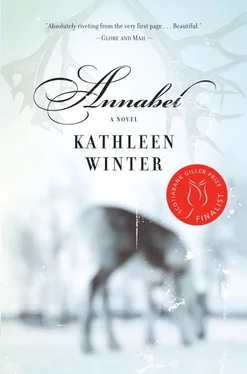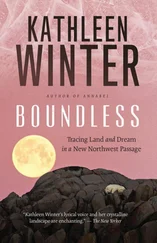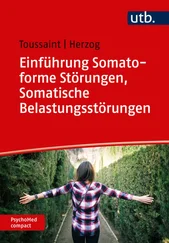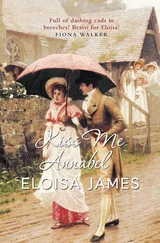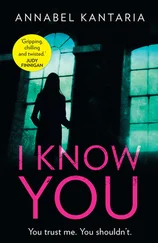“Your daughter who drowned. You were calling me after her?”
“I should have kept it to myself.”
“You must have been really sad. You only called me that when we were by ourselves, remember? You can still do that if you want. I don’t mind.”
“You’re kind, Wayne. Very kind.”
In the evenings Thomasina prepared her classes in her kitchen, which was normally shared with whoever rented the other rooms in the Guest House, but no one else was here now. She did not close the blinds, though every woman in Croydon Harbour closed the curtains at dusk. Thomasina had nothing to hide. The Guest House kitchen was white and modern, with a Formica table and a General Electric stove, and it contained the bare necessities. It had counters that she kept spotless, as it did not take long to wipe up a few toast crumbs after herself or clean the drop left by the back of her teaspoon. There was a small washing machine in an alcove but no dryer, and she laid her clean wet clothes on the radiators under the kitchen windows, so they would dry as she worked.
On her table was a stack of pictures with heavy outlines: archers, lyres, winged sandals, golden apples of the Hesperides. Normally she would not give grade sevens colouring sheets, but these were to make booklets about the Greek deities, and she had found the pictures in an Athenian museum. They were informative in a way that would tell a good part of each god’s story without words. Some of her students could read marks on a trail winding through eighty miles of wilderness but they were not good readers of English textbooks. Each student would be responsible for researching one persona: Artemis, Hera, Dionysus, Aphrodite, Apollo, Hermes, Demeter, Ceres. There was a deity to represent every human character, and Thomasina had found them all in her class, though the students did not know it, from the control and manipulation of Artemis reflected in Donna Palliser to the musical Euterpe in Wally Michelin and the presence of a descendant of the child of Hermes and Aphrodite, Hermaphroditus, in Wayne Blake.
Thomasina did not venerate Greek religion over the Protestant Christianity of the settlers in Croydon Harbour, or over the aboriginal stories her dead husband, Graham Montague, had known. She saw all tradition as metaphorical. It was, in her mind, all about story, character, psyche. She would not drum any religion into her students. They would see, she knew, through dogma of any kind. What interested Thomasina in Greek studies was that there was no pretense that the gods had lived. Everyone knew they represented the character in all of us. She would not tell her class this but intended only to let them enjoy playing roles they normally hid. Donna Palliser, for example, concealed from adults the way she led and ranked the girls. Wally Michelin had gone so far underground with her music that only the most intuitive person could spy it. Wayne Blake had no idea there was a girl, fully formed, curled inside his body.
To colour the illustrations Thomasina had artist-quality pencils. The Greek dance recording featured drum music she had bought from street musicians in Athens. A small man had played a bellows-like instrument she was eager for her students to hear, since it sounded like the button accordions their fathers and grandfathers played when they came home from the trapline.
She took her trousers and cardigans off the radiators and put them away, and made toast with homemade strawberry jam. She had stewed the berries whole. There was no place in Croydon Harbour to get strawberries. They were a soft berry, a summer berry, and Croydon Harbour did not have a summer long enough to include them. Thomasina had brought these frozen, insulated in newspapers, in her suitcase on the plane along with her tape recorder, her music, her few clothes, Pears soap, a ten-pound bag of coffee beans, and a small grinder. Could you not make a life for yourself any way you wanted, and in any place?
No man in Croydon Harbour would knock on the door of a woman not his wife on a moonlit night unless it was to inform her that her husband had perished, or unless he was a doctor come to save her life or the life of her child. But the night he saw that Wayne’s homework consisted of colouring a picture of Hermaphroditus — a young man with gladiator’s arms and a beard and a woman’s breasts and hips — Treadway felt he had no choice but to knock at the Guest House door and ask Thomasina Baikie what in the name of God she thought she was up to. If there was anything Treadway could not stand, it was someone who was sneaky or underhanded, and who used a back door as a way to get around his wishes.
He stood on the Guest House veranda and rapped his knuckles insistently until Thomasina appeared under her porch light. Anyone in town could see him there and see who he was, and that he was not in a good mood. He was so angry he had ceased to be aware that this might be a spectacle, but Thomasina had not, and she stepped back and pleaded with him to come in out of the night, which was beautiful. Orion had appeared from his summer sleep, and northern lights rippled green and pink at the edge of the sky. There was frost, and the sweet, decayed smell of floating twigs and caribou moss that always meant the partridgeberries were ripe in some places and it was time for the men to go on the trapline. This was Treadway’s problem. Just as he was preparing to leave his homestead for months, Thomasina Baikie seemed to be aiming to have Wayne’s whole school study in plain view a subject that should by anyone’s reckoning remain well covered up. On the trapline, stealth was everything. Treadway was an expert in staying upwind of fox, mink, and bear. His own livelihood and that of his family depended on it. You did not go out in plain view and announce your presence, your secrets, your private life. You did not let a wild animal know you harboured fear. Treadway was able to hold a secret like no other. Now, in Thomasina’s hallway by the door to her kitchen, he stood, his fear swallowed and hidden so deep there was no direct way for him to speak it, so he became indirect.
One time, and one time only, before Jacinta had come to the harbour and before Graham Montague had decided he wanted a woman, there had been a dance, and Thomasina had been in Treadway’s arms a good two hours. They were both quiet, solitary people, and each had wondered what it could be that other couples spoke into each other’s ears, laughing, underneath the band. There had been a sedateness to their dance, and they had thought about each other afterwards, but when Treadway sent his sister to ask Thomasina to go to the next dance with him, she had declined. Now, all these years later, they remembered the touch of each other’s body, and there was a tension between them because they were alone. This story could have been told of any woman and any man in the cove. In a small community the whole world dances in one another’s arms on one June night or another. Treadway should not have come.
“Are you all right?” Thomasina asked him. Treadway didn’t look all right. He was suddenly shy as well as angry, so she said, “Do you want to sit down?” He did not answer, only looked at the floor, so she brought him to the kitchen. He had not been in this house before. The house did not really belong to Croydon Harbour, and everyone knew enough about its story that they felt no need to go in. There was a distance about it, taller than the settlers’ houses, imposing, as if the people who built it and who dwelt in it thought they knew better than the settlers.
This was what all houses built by missionaries must be like, Treadway thought now, no matter where they were in the world. The Moravian missionaries’ wives had built drills and terraces all around the sides and back of this house and had grown crops no Labrador settler in his right mind would plant. Parsley and sugar snap peas and summer savory, cucumbers and frilly European lettuces, even tomatoes. They had tried to turn their handkerchief-sized piece of Labrador into a little piece of Europe, and had almost succeeded, using cloches and cold frames and other tender and intricate devices. They had grown sweet peas, for goodness’ sake — a flower that grew into a pod that had no culinary function — and had tied them to six-foot-high stakes with pieces of ribbon. It had worked for as long as the Moravian women were present and vigilant.
Читать дальше
